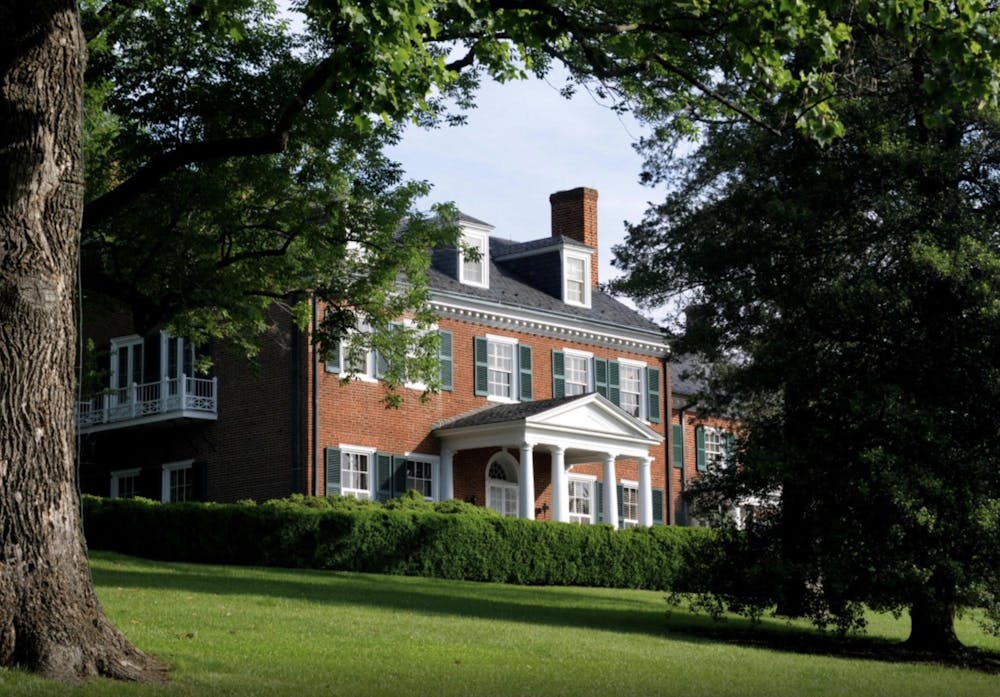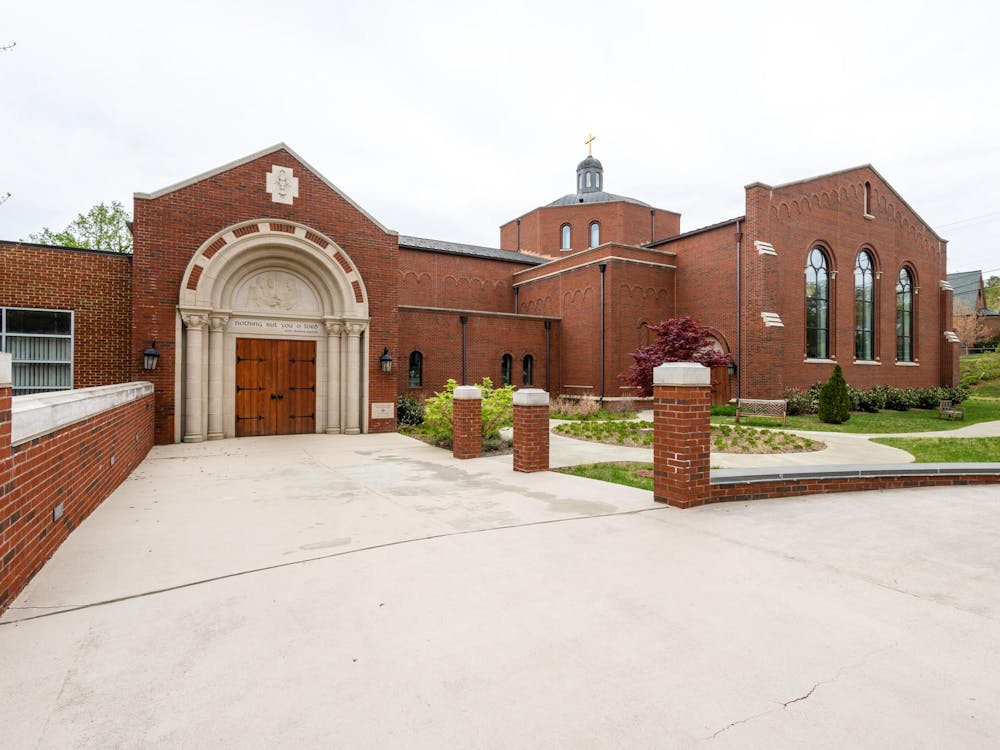The Meriwether Lewis Institute for Citizen Leadership, a multi-year fellowship that aims to equip students with leadership skills, introduced a new class this fall that allows MLI Fellows to implement personal projects intended to better the University community. The course, titled LPPS 4500, “Co-creation, Co-production and Implementation: exploring the ethical and practical implications,” uses an extensive peer-feedback system and unconventional teaching methods to help MLI Fellows make meaningful, long-term impacts on Grounds.
Originally piloted in 2014 under the leadership of former University President Teresa Sullivan, the MLI fellowship aims to nurture “deep and sustainable student engagement” with the University. Every fall, the fellowship selects a cohort of 30 second-year students who take the course LPPL 4225, “Leadership in Practice,” in the spring to prepare them for project-based work. The students subsequently engage in a five-week-long summer program, learning how to devise and present proposals for a project.
The new fall course enables Fellows to tackle issues independent from their summer assignment. This process fosters the development of new skills and gives participants increased autonomy over their impact on Grounds. While the summer offers MLI Fellows the chance to work in groups on an assigned project, students in the fall class work individually or in small groups on personal projects meant to benefit the University.
According to Brian Williams, the course instructor and professor of Public Policy, this new part of the fellowship furthers MLI’s mission of motivating students to change the University in the long-term.
“The purpose of the class is to help the MLI Fellows better understand how to implement and meaningfully engage in projects,” Williams said. “It’s also so that they can have a sustained ripple effect — that's what the MLI program is all about.”
In Williams’ class students pin down key challenges in the community and devise ways to resolve them. Topics include, but are not limited to, working with the Contracted Independent Organization undocUVA to support student immigrants, revamping faded organizations on Grounds and collaborating with University departments to strengthen career development resources for students. According to Williams, MLI Fellows take the lead in identifying University issues they wish to address.
“[MLI Fellows] are filling in gaps that they see across Grounds in terms of things that could be filled, enhanced and also sustained,” Williams said. “We're just following their lead and nudging them along that process.”
With more than half the semester behind them, students have expanded their ability to make their projects more impactful. Merritt Brazell, MLI Fellow and third-year College student, noted how the first two phases of the fellowship trained his cohort to develop leadership and problem-solving skills, while the new phase focuses on putting these skills into practice.
“You’ve done this leadership development, and you've seen how you can have an impact at U.Va. through a project over the summer,” Brazell said. “But how can you go back to your communities at U.Va. and really create meaningful engagement … so that you have an impact that lasts past your time here?”
Beyond empowering students to choose a focus area for their project, Williams’ course allows students to see their projects through from inception to implementation. Unlike the summer projects, where some Fellows may or may not see their proposals come to life, the fall course gives students time to develop, propose and carry out their projects.
Brazell described his uncertainty over whether his group’s summer proposal will ultimately be implemented. This summer, the MLI Fellows were tasked with increasing student interaction with Morven Sustainability Lab, a property spanning over 2,900 acres in Albemarle County that serves as a hub for University meetings and events. Brazell’s group presented a proposal to create a Special Status Organization to oversee day-to-day operations of the lab.
While a select few MLI summer projects may become fully realized — in a notable project from 2017, a group of MLI Fellows helped design 1515 on the Corner — Brazell and his group members remain unsure whether their proposal or even parts of their proposal will be accepted by the Morven directors.
“We don't know yet what they're going to implement and what they're not going to,” Brazell said. “But I surely hope that they will pick and choose the best aspects of all of our presentations.”
Meanwhile, in “Co-creation, Co-production and Implementation,” Williams’ fall class, MLI Fellows take charge in just about every aspect of their project, including its implementation. Rakeem Walker, program coordinator at the office of the vice president of student affairs, said one of the main purposes of the class is to equip students with the confidence and resources to see a project through to completion by the time they are fourth-year students.
“My goal is for them to have a clear plan for what they want to do after they leave this class,” Walker said. “For us, it’s having a defined idea of what project, event or task they want to tackle while they're in the MLI cohort and then be able to have the toolkit to implement those projects.”
The course combines peer feedback and non-traditional learning methods to push students to think deeply about their engagement on Grounds. Regarding the former approach, Williams said giving students class time to analyze each other’s projects is a vital aspect of the course.
“We have a phase of a class called ‘ironworks,’ where iron sharpens iron,” Williams said. “[The students] help identify things that could be enhanced related to their projects, then they give feedback. That's what the cohort model is all about.”
Charlotte Borthwick, MLI Fellow and third-year Commerce student, explained how mentors, professors and fellow students have given her valuable commentary on her project.
“This class has been a really great opportunity to get a lot of feedback from my peers in my cohort, as well as to have structured feedback from professors at the University,” Borthwick said.
In addition to organizing phases such as ironworks, Williams explores unconventional teaching methods to foster students’ creativity and problem-solving. Whether Williams frames leadership as a continuous climb with peaks and valleys or plays a song at the beginning of class to get students in a certain headspace for an assignment, the course goes beyond traditional classroom instruction. Brazell said the class’s out-of-the box approach teaches students how to think on their feet.
“It's always a surprise, and that's what keeps it exciting,” Brazell said. “You never know exactly what you're going to be doing, but it keeps you on your toes. That's something that I think MLI really teaches you how to do — address problems in a strategic way, but also be able to address things as they’re happening.”
As students continue developing their projects throughout the semester, Williams said they strive to make a meaningful impact on Grounds. He said the foundational skills they acquire in the first two stages of the fellowship, combined with hands-on learning in the fall course, position them to see their ideas create tangible change across the University.
“[The class] allows them to have a deeper appreciation for bringing theory into practice, which is what implementation is all about,” Williams said. “You can have the best vision in the world, but how do you make that vision become a reality?”







